The debut of tenor Pavel Černoch in Brno was rather inconspicuous. A part of the children Kantilena is hardly remembered by the audience and the side roles in the Magic Flute are also not world shattering. But that was several years back, Pavel Černoch is a regular part of the world opera scene and he would like to conquer the Metropolitan Opera in major roles. This December he will return to Brno with his first great gala concert of his career.
In December you are preparing an opera concert at Janáček Theatre in Brno. What forced you to return to your initial professional stage, where you began your career many years before?
There were many things and it even offers itself. It is my first solo gala concert of this scale, Brno is my hometown, and Janáček Theatre is the stage, where I performed for the first time. For the first time in my life I experienced the adrenaline rush on the stage there – I sang there when I was eleven in Kocour Mikeš (Mikeš the Tomcat) and the Jacobin. At first the concert should have been at Dvořákova Praha, but in the end I had to decline because Káťa Kabanová was being performed in Oslo – the planning for which was done two years in advance. Then I was visited by the conductor Jaroslav Kyzlink and the director of the opera Jiří Heřman. They offered me the gala concert in the time before Christmas and they also adapted the date, I found it absolutely amazing. At the concert I will be accompanied by the orchestra and the choir and I will invite some guests, which are members of the ensemble.
What programme do you plan for Brno?
The concert is divided into four parts, the first will be Italian, the second will be Czech, the third will be French and the last one will contain encores, if the audience would be interested. They are things that I already sang on stage with some extras, which I will sing for the first time. In the Italian part there will be aria and duet from Tosca by Cavaradossi, Giocondo by Ponchielli and the great scene from Simon Boccanegra, and the Czech part will of course contain Jeník and Prince. In the French part there will be the Flower aria from Carmen and I promoted the entire final duet with the choir. I will sing Tosca along with Iveta Jiříková and in Carmen I will be accompanied by Václava Krejčí Housková.
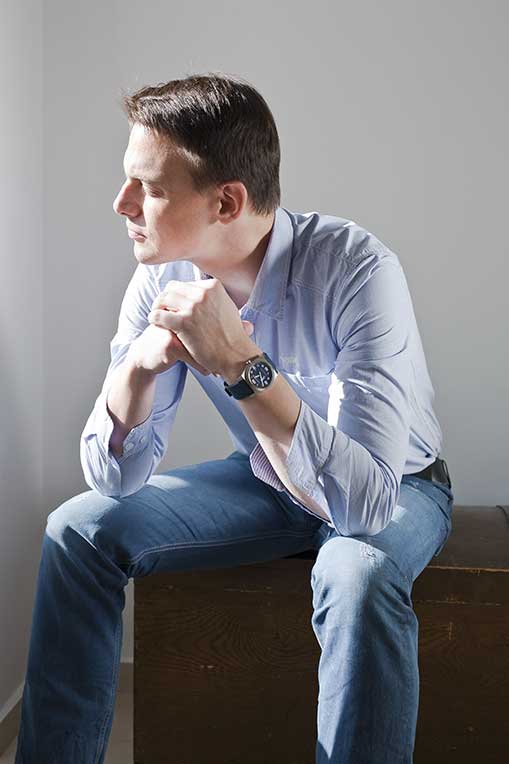 You studied musical management at JAMU and you cooperated with the Artemis agency of Jitka Zehauová. Do you have managerial thinking?
You studied musical management at JAMU and you cooperated with the Artemis agency of Jitka Zehauová. Do you have managerial thinking?
Absolutely, I am a manager and I even have my own business. I always wanted to do crisis management, that’s what interests me, I like troubles – whether in the private sphere or with friends, I immediately have variations of solution methods, I switch off emotions and the rational approach comes. In Brno I helped Jitka Zerhauová with cultural management. In this period I got to know Hana Průšová, who started the organization of social events, conventions, workshops; in short a marketing event. I provided cultural service to her events for a long time, but I already came to know things in the surroundings. In 2002 I founded my own event company – at that time I still didn’t believe that I would sing professionally, and frankly I couldn’t imagine, with my ambitions, that I would be forever employed in the regional theatre. This company is still active and for me it is a kind of opposite to opera singing. I live two different lives in absolutely different worlds and I like it.
It must also be good for the stage performance, that you can switch off emotions...
It is very important. For a long time I had issues with emotions on stage, because I am very sensitive, for example at the end of Traviata I began to cry. I have magnificent partners, which got the better of me, but when I saw Kristina Opolais in Rusalka, how she had her eyes full of tears and at the same time she tugged my arm and whispered to me frantically: “Tell me the text! Tell me the text!” I immediately recognized that she was not immersed in it at all, that she was acting perfectly. My mother comes to all my premieres and some performances, and every time that I have almost no emotion and I have almost absolute control, she is absolutely excited. She tells me every time after the performance: “You were so immersed in it, it was fantastic!” But when I start to get emotionally engaged, the effect on the spectator does not work. Later I find out that it was not right, that I was unnatural and really nervous.
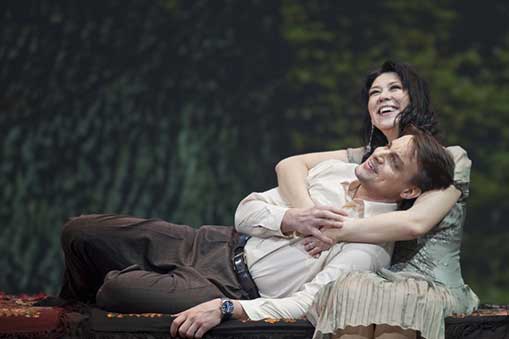 You do not appear on our opera stages – do you even have any offers from Czech theatres? Or let me put it better – do you have any acceptable offers?
You do not appear on our opera stages – do you even have any offers from Czech theatres? Or let me put it better – do you have any acceptable offers?
Now I have. When I did not have so many performances abroad, I had no offers here. Now, when I am a bit more known – I mean in a closed circle of the professional public – I have offers, but usually they are a flash in the pan. For example someone calls in January and asks, if I can perform in summer at the festival in Český Krumlov. I was offered something by Martin Leginus, the director of the State Opera, but it was only a year in advance, therefore I could not accept. I would have to be Kaufmann to be called by the National Theatre, and made an offer in which I would choose what to sing and I would have two years to prepare. But If I were Kaufmann, they wouldn’t be able to pay me; therefore it is a vicious circle. However, it is possible with the Czech Philharmonic and I am glad.
Do you have in mind the Requiem by Verdi in Rudolfinum the last year?
That was a stand-in and it was a bit funny. They did not know me at all and they did not even know that I exist. Their tenor backed out a day before the performance, so they called an agency in Munich, they had no-one available, so they called London, and the London agency called my agency in New York. The agency told them that two hundred metres from them Pavel Černoch performed at Vinohrady, he took line twenty two and came to sing in Rudolfinum. But Mr. Bělohlávek has known me for a long time, he follows my work and every year he makes me an offer: to London for BBC Proms and others, we recently planned the start of the new season with the Song of the Earth by Gustav Mahler together and the New Year’s Concert 2017 – there I will perform with Olga Peretjatko, who I know well, because we performed together in La Scala and at the Berlin State Opera in the performance of the Tzar’s Bride. I also have an offer for 2018 that is an important Czechoslovakia founding anniversary, where only Czech music will be played. I have to find a date and choose a piece, which I would produce with the Czech Philharmonic. I have similar offers from the Radio Classic.
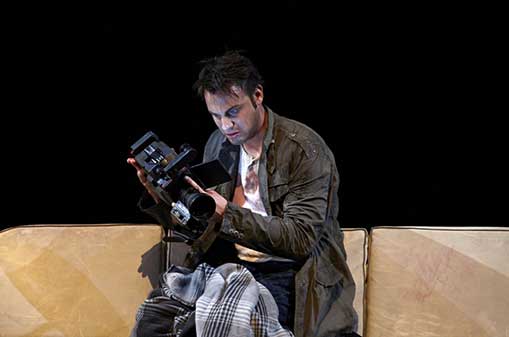 You mentioned that you are known “in the closed circle of the professional public”. How much known are the opera singers in world, which is often discussed in connection to anyone, who has a good contract in Berlin or Zurich?
You mentioned that you are known “in the closed circle of the professional public”. How much known are the opera singers in world, which is often discussed in connection to anyone, who has a good contract in Berlin or Zurich?
World famous singers are Jonas Kaufmann and Anna Netrebko, but Pavel Černoch is not famous. I sing in Munich, London, Hamburg, Milan, Boston, Moscow, Zurich, but I am not world famous. To be world famous is not determined only by roles, how you sing or how good you are. It is important, which career you choose and if you have a large PR, because nowadays everything is paid. Moreover you need contracts with recoding companies. A singer from a “hick town” will not be offered a contract from a large PR agency and you also need some kind of support. I am not a world famous singer, I am known to all in a closed professional circle and opera fans, but in general only Kaufmann works – I test it on my friends from business. I would like to receive an offer from a PR agency, like it happened with my opera management. But I do not want to send out letters and request cooperation, I never did this with anyone and I don’t even intend to.
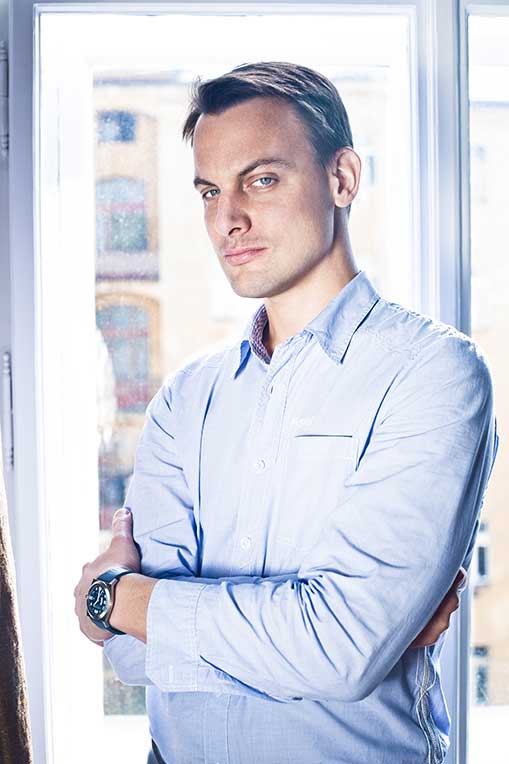 Yes, but there is always something published about these world famous stars...
Yes, but there is always something published about these world famous stars...
And now you have in mind Kaufmann or someone who sings in one theatre abroad and presents himself as world famous in the Czech Republic? Every one of these colleagues can present himself as he wants and I cannot judge any of them. On the other hand it is interesting that the media, which should find out the truth of the matter, will invent absolutely anything to increase their ratings. And I see it also in my business. But I must say one important thing: I am aspiring to be a star and within the next ten years I want to get as close to the top as possible. The only contract that I miss is with the Metropolitan Opera, and at the moment I am working on it. I still have to sing many roles in Europe and I hope that afterwards it will succeed. There is a difference in what role you sing and with what role you want to enter. It is interesting if you sing Carlos or Cavaradossi, Faust or the Prince, or Monostatos. And to go there as Monostatos or Carlos, that is the crucial difference. I don’t know if I am making myself easy to understand.
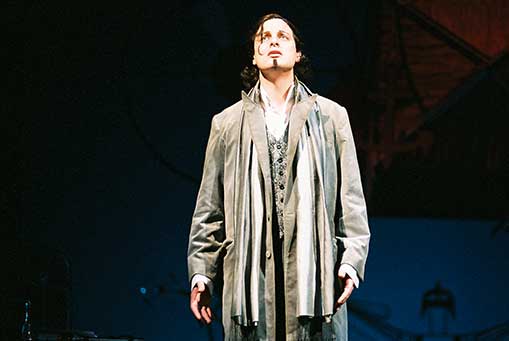 I understand you. When I saw you debut in Brno, you sang Monostatos, and even if you sang like a god, you were not the main character. Therefore I understand that you do not want to enter the Metropolitan Opera only for the reason that you were there.
I understand you. When I saw you debut in Brno, you sang Monostatos, and even if you sang like a god, you were not the main character. Therefore I understand that you do not want to enter the Metropolitan Opera only for the reason that you were there.
Honestly it is not about what I want or don’t want, but it is mainly about the decision of my agency. If I didn’t have really good management, I would be doing only Janáček and Prince. Through my agency I have offers for five productions of Káťa Kabanová, and also for Števa, Laca, Albert Gregor and Prince. But our ambitions are greater, therefore I perform no more than two or three productions per year. Last year I performed in Rusalka, Káťa Kabanová and Jenufa, and additionally I performed in Madame Butterfly, La Damnation de Faust and Carmen. Next year I will perform twice in Don Carlos, Hoffmann Tales with additional Jenufa and Makropoulos Affair, so that it is balanced.
MET has become a magical place, which other great operas fade in comparison with.
Absolutely, Vienna or La Scala are now left behind, MET and Covent Garden are important. I am a bit angry at the Metropolitan: for laymen and the professional public it is the highest level and until you reach it, they don’t consider you one of the “best”. I would love to get there one day, which would silence the never ending questions like: “And what about the Metropolitan?”
For example Vienna State Opera is very good, but I think that it somehow fell behind and that it does not make itself known. Similarly I think that Berlin Philharmonic absolutely overwhelmed the Vienna Philharmonic. Whilst the Vienna Philharmonic is a great orchestra and they also work with Simon Rattle...
Here you can see how it is with the quality and media fame.
Czech operas are commonly produced without Czech singers. Did Czech ever help you to get a role?
No, it never did.
You specialize in opera; songs are not your area of expertise. What draws you to the musical – dramatic form?
I have not chosen this, it is a question of opportunity. I love songs; I would like to do them. But ninety percent of my agency is oriented on opera, the projects are connected and they occupy all my time. I do concerts, but they are repeatedly Requiem by Verdi, the ninth symphony by Beethoven – I performed that one two months ago at BBC Proms with Andris Nelsons – now there will be Glagolic Mass by Janáček with John Elliot Gardiner in the Tonhalle in Zurich. I am negotiating cooperation with a large German concert agency. But the dramatic form and stage interest me, because I am a comedian, I like transferring emotions and I am glad when people go home from the opera with tears of joy. This is the point of our work in my opinion.
Richard Novák said that evenings full of songs were the most difficult discipline for singers. Isn’t more work in combination with little effect discouraging?
Effect in which sense of the word? You must love songs. Nobody will pay for them and people do not flock to hear them. The intensity of affection must be very strong and you must make it your own thing. And it is difficult too; to achieve a satisfying result you must memorize everything, you need excellent accompaniment and it is ideal to sing in a language you understand.
How can you turn a promising voice into a usable instrument?
If you are talented and you have good material, in addition you need a lot of intuition and to be self-critical, and you must be lucky to get to a person who can lead you and teach you. It is very important for young people to admit that their teachers are not worth a rap. They are at some good academies, they can see they are not successful; however, they stay and they do not have enough courage to change it. Based on my experience, people who are successful are usually shooters and tough guys. If things did not go as they wanted or they did not feel comfortable with the teacher, they went away; many of them have no formal education, they had private tutors. Nonetheless, they did not stop looking for the way which was best for them, they approached themselves with criticism. You need a master if you want to make a good instrument from good material; it is the same with wood and violin. If is made by butter-fingers, it will never sound good.
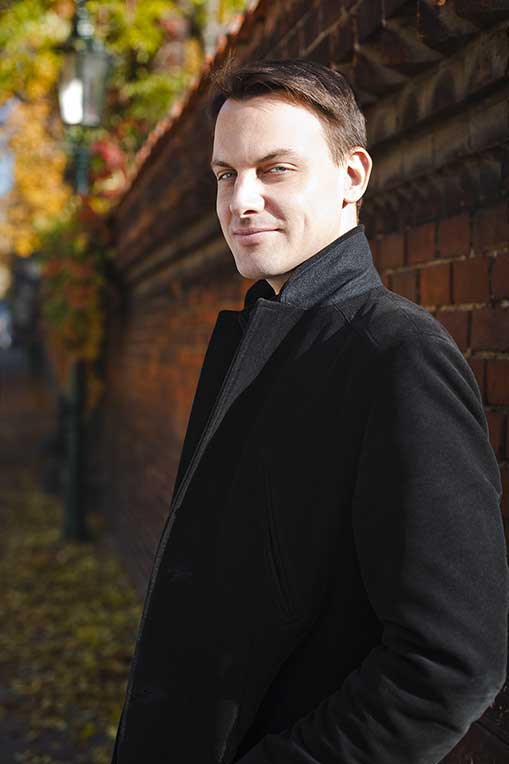 Unlike the violin, you cannot buy a new voice.
Unlike the violin, you cannot buy a new voice.
Oh yes, you can. You can have your vocal chords operated twice; for the third time there is nothing left to be operated on.
If somebody goes to a conservatoire to learn to sing, they actually know nothing at all and there is a strong mental bond with the teacher who teaches them from the very beginning. Is it not a matter of personality?
That is what I am speaking about all the time; they are unable to come clean with themselves. Quite recently I had a heated discussion with my agency about the schedule and I told them: “I will stand on the stage, I have to sing. And if I do not sing well, you will be the first ones to lose interest in me. Leave me alone then”. You have to be pragmatic about these things and if you cannot sing, your perfect relationship with your teacher is to no purpose. If you take opera studios all over Europe, there are young singers from all over the world but the Czech Republic and I do not know why. There are exceptions, such as Ivana Rusko in Zurich, but these are usually people who never studied in the Czech Republic.
When did you start thinking of your voice as promising?
It was actually very late, very late indeed. When I started taking my voice seriously as my career instrument, I was in my mid-thirties; which is about five or six years ago. I keep working, keep learning, I learn every part with my teacher but I also feel it keeps going and that is exactly what I need in my life.
Does it mean you have not finished your studies of singing?
No, it is like sport; you can never stop training. It is the same thing – your muscles, the way your body changes with age, and when you stop training it is all gone. You cannot say: “I have learned to sing so that I can sing now”, that is an illusion.
And my last question: what are your plans in the near future, which performances and theatres are you going to work?
At the moment it is Don Carlos in a large five-act version in French; I have already signed contracts for all the existing versions. I will perform the longest one in French in Hamburg under director Peter Konwitschny. Then there is the classical one in Italian, which will open the new opera house in Cologne in September 2016. There is a shorter French version performed in Paris in Bastille, where I alternate with Kaufmann and finally, there is a long one in Italian in Munich. And then I will do a concert performance of Jolanta with Temirkanov and the Saint Petersburg Philharmonic Orchestra in Saint Petersburg and Short Stories of Hoffmann in Stuttgart. And a festival in Bregenz 2016 will be opened by the opera Hamlet written by Franco Faccio, Verdi's pupil. And also Prince Igor, a revival of the Metropolitan Opera performance; Káťa Kabanová in Covent Garden, London; and many other things.




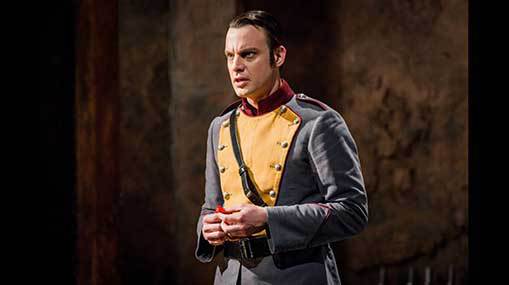



























No comment added yet..